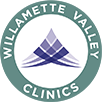June 23, 2020
Elizabeth Ackerman, MD
Orthopedic Surgeon
Willamette Valley Orthopedics
& Sports Medicine
My patients frequently ask, “What can I do to help my fracture heal?” Once you have had a fracture, your body generally knows just what to do to heal it. In fact, the process starts as soon as cells enter the fracture site immediately through the blood. These cells release chemicals that start the healing process right away and will turn into new bone. However, that’s on a cellular level - much smaller than what we see in our day to day living. There are many things we can do on a larger scale to help a fracture heal. Make an effort to consider the following:
Diet
It is important to eat a healthy diet in order to give your body the building blocks necessary to heal a fracture. You wouldn't expect someone to build a brick house for you without the proper tools. Your body needs vitamins, minerals, and energy to rebuild bone. One major source of energy is protein, which will help your body have proper building blocks.
Calcium
Frequently, we don't eat enough foods with calcium. Additionally, as we age, we are less able to absorb enough calcium from the foods we eat. It is important to increase the amount of calcium if you are not getting enough in your diet by taking a supplement. This recommendation changes with your age, if you are menopausal, or breastfeeding. It also varies depending on whether you are male or female. It is important to be mindful of the amount you take, as calcium can be toxic at high levels, so check with your doctor if you are unsure of how much to take.
Vitamin D
It is true we can get vitamin D by being in the sun; however, this typically isn't enough. This is because the quality of the sun changes depending on where you live in relation to the equator. In general, if you live north of the line of latitude of Atlanta, Georgia, it is recommended to take a vitamin D supplement. Additionally, the amount of vitamin D the sun can help you make is limited by the risk of developing skin cancer.
Why is vitamin D important? While vitamin D supplementation will not directly make your fracture heal better, it helps your body absorb calcium along with performing other jobs in your body. It is very common to be vitamin D deficient, especially if you are elderly. If you are vitamin D deficient, you can have a difficult time healing a fracture.
Smoking
I know, I know. You've been told by every doctor you've ever encountered that you need to quit smoking. Smoking slows (and can even stop) bone healing altogether. If you have not already, it would be beneficial to quit as soon as you break your bone. Remember what I said about healing starting as soon as the fracture occurs? Blood flow is decreased by smoking, which in turn slows down the healing process. It isn't just the nasty things in a cigarette that cause problems; nicotine in and of itself has been shown to slow healing as well. While it is best to quit completely, I recommend you wean from smoking by using a patch or gum at a minimum. This is thought to be better than continuing to smoke.
Alcohol
Alcohol can also slow and stop bone healing. This happens if you are chronically drinking or if you binge drink. Alcohol stops the increase of the number of cells essential to building bone, called osteoblasts. Again, think of building a brick house... but there are no bricks.
Chronic opioids
At this time, we are in the middle of an opiate crisis. Each day we are learning more about the harmful effects of opioids. Not only can they be lethal, but there is evidence they can lead to delayed or failed healing of fractures. Because of this, we make it a practice to try and have people weaned from narcotics within the first week of use. It is actually recommended to use Tylenol, ice, and other forms of pain control, such as meditation, breathing techniques, and self-reassurance, to help during the initial phase of a healing fracture. It has been found that patients who take narcotic pain medication for more than 7 days after an injury are more likely to still be on that medication at 3 months.
I hope this helps in your journey to fracture healing.
For more information on how we can help you recover quickly and return to the activities you love, call our team at 503.435.4520.
